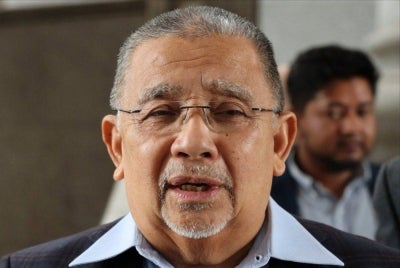Death penalty in Islam only imposed in limited circumstances - religious experts

SHAH ALAM - In Islam, punishments were only restricted to very few offences and there is no offical stand on death penalty, say religious experts
Syariah lawyer Fahri Azzat explained that under Syariah criminal law, the death penalty is provided for offences for which the Quran stipulates a punishment, for example adultery (zina) and retaliation (qisas).
"However, we should also appreciate that the punishment in Islam is restricted to very few offences.
"Although Islam imposes death as a punishment, it does so in very limited circumstances.
"I also believe the Islamic qualities of mercy, brotherhood, and respect for life are important. Allah is about justice, forgiveness, and mercy," he told Sinar Daily.
Fahri further added that it is not appropriate to discuss whether Islam is comfortable with the death penalty or not because Islam is a practical religion that deals with specifics.
Meanwhile, Penang Mufti Datuk Seri Wan Salim Wan Mohd Noor commented that the death penalty issue should be left to the discretion and wisdom of the government.
"However, I just hope that whatever decision is about to be made should be considered comprehensively, taking into account the interests of the majority of citizens.
"The important thing is to level the atmosphere of peace and safety in the country so that it can guarantee a comfortable and prosperous life for the common people without being overshadowed by worries about their safety as well as that of their families and properties," he explained.
Previously, Minister in the Prime Minister’s Department (Law and Institutional Reform) Datuk Seri Azalina Othman Said was reported as saying that the Cabinet had agreed to several new policies related to efforts to abolish the mandatory death penalty.
She said the new policies, which were endorsed, included replacing life imprisonment as an alternative to the mandatory death sentence with the new alternative of jailing for between 30 and 40 years and whipping for not fewer than 12 strokes.
"Apart from this, life imprisonment as a form of penalty has been fully abolished in all laws; the death sentence has been abolished for offences that did not result in deaths except for three offences, namely under Sections 121 and 121A of the Penal Code and Section 39B of the Dangerous Drugs Act of 1952.
Download Sinar Daily application.Click Here!















